Wanted to write a few words on a recent New York Times article on fiction writer Tom Grimes, who directs the MFA program at Texas State from which I graduated a few years ago. The article is part cautionary tale about literary fame, part review of Grimes’s new book Mentor, which concerns his relationship with writer Frank Conroy, former director of the Iowa Writers’ Workshop. The book, to quote the Times article, is “really about … the slow-motion derailment of Mr. Grimes’s own once promising literary career, a process that took his pride before it took his sanity.”
The story begins when Grimes was a down-and-out writer grinding away at part-time jobs while working on his fiction. He decided to apply to a few writing programs, and “got only rejections.” Then:
- A telephone call from Conroy changed his life. “I never call anyone,” Conroy told him, “but I’ve read your manuscript.” Within a few months Mr. Grimes was teaching alongside Conroy in Iowa. To the envy and dismay of other writers at the prestigious workshop, he became the “golden boy,” the one who could do no wrong in Conroy’s eyes.
I can relate to this. Back-dating from the temporal clues in the article, it would appear that Grimes was around 30, if not slightly older, when he received this call. My own story about deciding to apply to MFA programs is similar, if not nearly so dramatic. I was living in San Francisco. I’d been studying privately with master poets, going to readings, beginning to publish a bit, running a small press, generally doing my best to break into the scene in a modest way. It seemed that the time for further formal education had passed, for me.
But, working two jobs and auditing a graduate poetry course, I grew frustrated with my inability to keep up with the reading. I realized that to truly learn the things I wanted to learn, not just about poetry but literature and language, I would have to devote myself much more fully. And the best way to do that, it seemed, was to apply to MFA programs. I’d be poor, I’d be a student again at 30+, but if I received a good offer, I could learn the things I wanted to learn, as well as have the opportunity to teach, without going too deep in hock.
I still remember the day Tom Grimes called me to offer a very generous fellowship at Texas State. It was the day before Easter. I took the call in the hallway of my apartment in San Francisco. The offer came rather late in the game, and I had already verbally agreed to a deal at another school. But in the end, it was a no-brainer. I could move back to the Austin area and be near friends, I could live cheaply, I would have time to study and write, without having to take out a loan. Paradise. A miracle, especially at my age (I was 34 at the time). I quickly backed out of my prior acceptance, and within a few months I was on my way back to Texas.
There, the similarities with Tom’s story end. I was never the “golden boy.” There were no offers to set me up with an agent in New York. I doubt this would have been the situation in any case — the entire MFA program enterprise has changed drastically since the 1980s; there are so many more of them, and so many more students, and at any rate Texas State is not Iowa. But the biggest difference of all, of course, is that I’m a poet and Tom writes fiction. And at Texas State, as at most programs, never the twain shall meet. So Tom welcomed me to the program and our paths crossed from time to time, but by and large I was indexed with the poets, and poetry does not operate on the scale of fiction when it comes to the literary marketplace.
And thank god for that.
Consider the following: Tom Grimes directs a successful writing program in a beautiful part of the country. He has published five books, which have been blurbed by substantial authors such as Thom Jones, T. C. Boyle, and Denis Johnson, and reviewed by big-time publications like the NY Times and Washington Post. By most measures — certainly by any measure in the world of poetry — Tom is a huge success as a writer.
Yet, according to the Times, his is a “cautionary tale.” His first novel, brought out by Little, Brown, was negatively reviewed, did not sell, did not make it to paperback. Tom himself labels it a “failure.” He had trouble selling the next one. After that he began to “crack up,” and it was only through his ongoing friendship with Conroy, as well as, presumably, the efforts of his wife, friends, and his own intestinal fortitude, that he picked himself up and eventually kept going.
There are lots of conclusions one could draw from this story, but in the context of things I’ve been thinking and writing about recently, I’d like to stick to the literary marketplace and the idea of exposure and success.
In terms of the marketplace, Tom is a failure. He’s not a bestselling author. He’s not a household name. He’s not someone who commands a guest spot on Oprah. He’s not a writer whose books appear in “best of the decade” or “best of the century” lists.
But as I argue above, in other respects, he is an unqualified success. If he were a poet, again, he would have achieved about all it’s possible to achieve in the professional realm. (There are no NY Times bestsellers in poetry; no guest spots on Oprah; no “best of” lists.)
So I do take it as a cautionary tale, but in a somewhat different way: Be careful how you measure success for yourself. Be careful how you allow success to be measured for you. Forge your own path. Forget the marketplace. It’s sure to forget you.

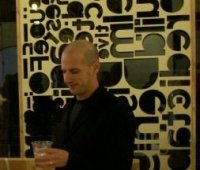

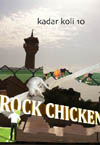


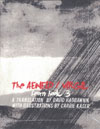
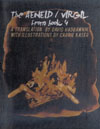






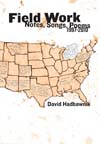
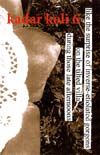
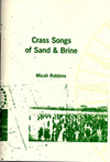
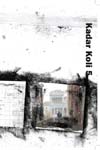
I’ve seen Maya Angelou on an Oprah Christmas special, so in that sense, you’re wrong. I also saw famous memoirist James Frey, and Coen Brothers screenplay writer Cormac McCarthy. But I haven’t seen Tom Grimes on there. That would freak my shit out.
andrew–
you’re watching too much oprah? yeah, i think my head would explode if tom sat down on that couch. must-see tv, for sure. saw that you’re blogging again, looking forward to reading it…